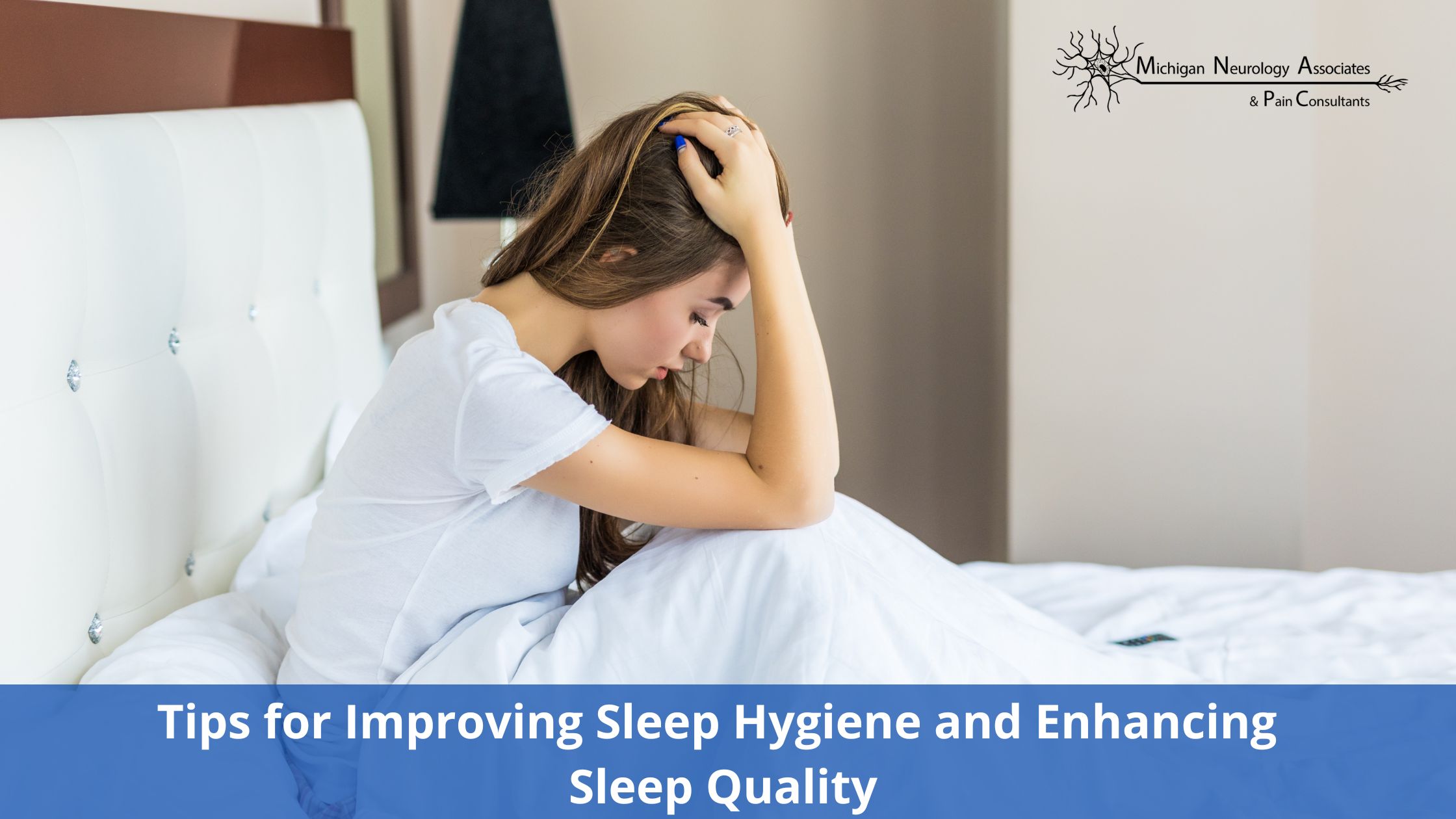



Sleep hygiene refers to a set of practices and habits that promote healthy and restful sleep. It involves adopting behaviors that both optimize the quality and duration of sleep as well as maintain your natural circadian rhythm. Sleep hygiene is crucial because it directly impacts our well-being and daily lives. Good sleep hygiene involves tailoring your sleep habits to your unique needs, lifestyle, and circumstances. It is important to optimize your sleep routine to ensure you get enough sleep for overall health and well-being.
This blog will further explain the fundamental principles that underlie improved sleep hygiene. We will explore essential habits for enhancing the quality of your sleep, share tips to achieve a more restful night's sleep, and learn when it's advisable to seek professional guidance. By the end of this blog, you'll be well-equipped with the knowledge and insights needed to elevate your sleep hygiene and, consequently, your overall well-being.
Improving your sleep health involves adopting various habits and practices that promote better sleep quality and overall well-being. Some habits that can help you achieve a more restful night's sleep are maintaining a consistent sleep-wake routine, creating a comfortable sleep environment, limiting exposure to bright light or monitoring screens before bed, and being mindful of the amount of food and type of food consumed in the hours before bedtime.
Remember that it may take time to establish optimal behaviors before you can establish these habits and see improvements in your sleep health and overall well-being. Be patient and consistent in your efforts to promote better sleep, and consider keeping a sleep diary to track your progress. Over time, these habits can lead to more restful and refreshing sleep as well as, contributing to overall health and well-being.
If you nap, keep it short (20-30 minutes) and between noon and 3 p.m. in the day to avoid interfering with nighttime sleep.
Spend time outdoors during the day, especially in the morning. Natural light helps regulate your circadian rhythm, making it easier to fall asleep at night.
Engage in regular exercise, but avoid intense workouts close to bedtime. Exercise can promote better sleep quality.
Practice stress-reduction techniques such as meditation, deep breathing, or progressive muscle relaxation to calm your mind before sleep.
Ensure your bedroom is conducive to sleep. It includes a comfortable mattress and pillows, proper room temperature, and minimal noise and light (it is best to avoid a television running in the bedroom).
Go to bed when you become sleepy, and maintain a consistent wake-up time every day, even on weekends. It helps regulate the body’s internal clock which is linked to the circadian rhythm.
Establish a bedtime routine to signal your body that it’s time to sleep. It can include reading, taking a warm bath, or practicing gentle stretches.
Avoid screens such as phones, tablets, and computers at least an hour before bedtime. The blue light from screens can disrupt your sleep-wake cycle.
Avoid large, heavy meals, caffeine, other stimulants, alcohol, or diuretics close to bedtime. These can interfere with sleep.
If you already observe most of these strategies then consider seeking out a sleep specialist to rule out a formal sleep disorder. This may require but do not experience restful sleep, and diagnostic testing, to effectively identify and treat your sleep disorder. Professional help is crucial, especially when dealing with sleep-related conditions such as:
If you've been experiencing persistent sleep difficulties that last for several weeks or months, it's a clear sign that you should consult a healthcare professional. Common issues include difficulty falling asleep, staying asleep, or waking up too early.
When insomnia becomes chronic (lasting at least three nights a week for three months or more) and affects your daily life, it's time to seek professional help. A healthcare provider or sleep specialist can help identify the underlying causes and develop a treatment plan.
If you notice symptoms of sleep apnea, such as loud snoring, choking or gasping during sleep, feeling unrefreshed in the morning, or excessive daytime sleepiness. It is essential to consult a healthcare professional because untreated sleep apnea can lead to serious health issues, including cardiovascular problems, and requires specialized diagnosis and a long-term treatment plan.
An irresistible urge to move the legs, often accompanied by uncomfortable sensations. If you experience these symptoms regularly and they disrupt your sleep, seeking professional help is advisable to rule out either an underlying treatable condition or another sleep disorder commonly linked to RLS.
At Michigan Neurology Associates & Pain Consultants, we offer various types of sleep disorders and other specialized services. Call us today to schedule an appointment.